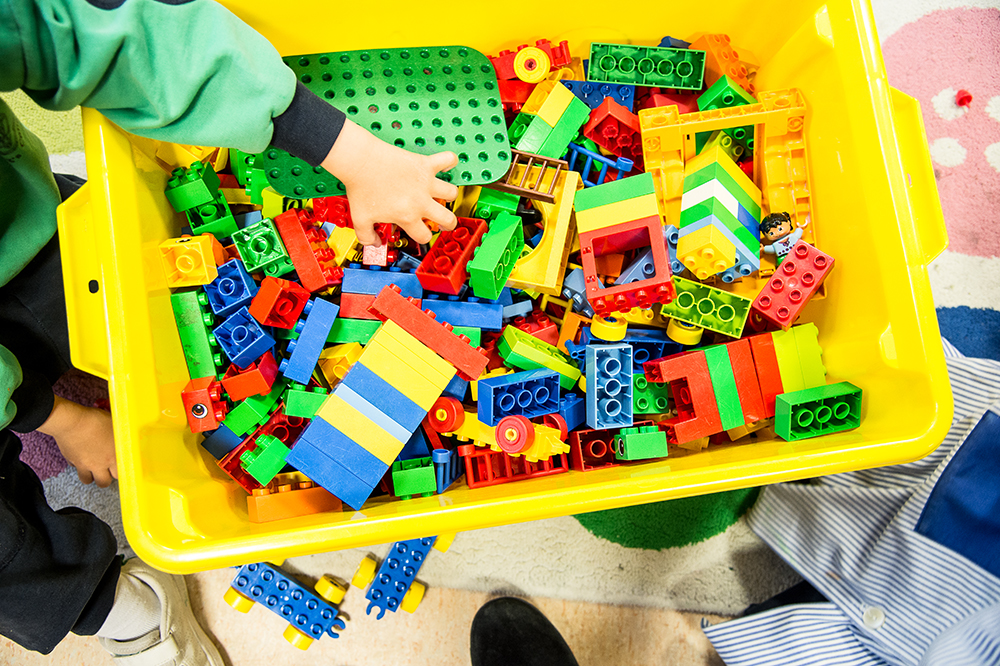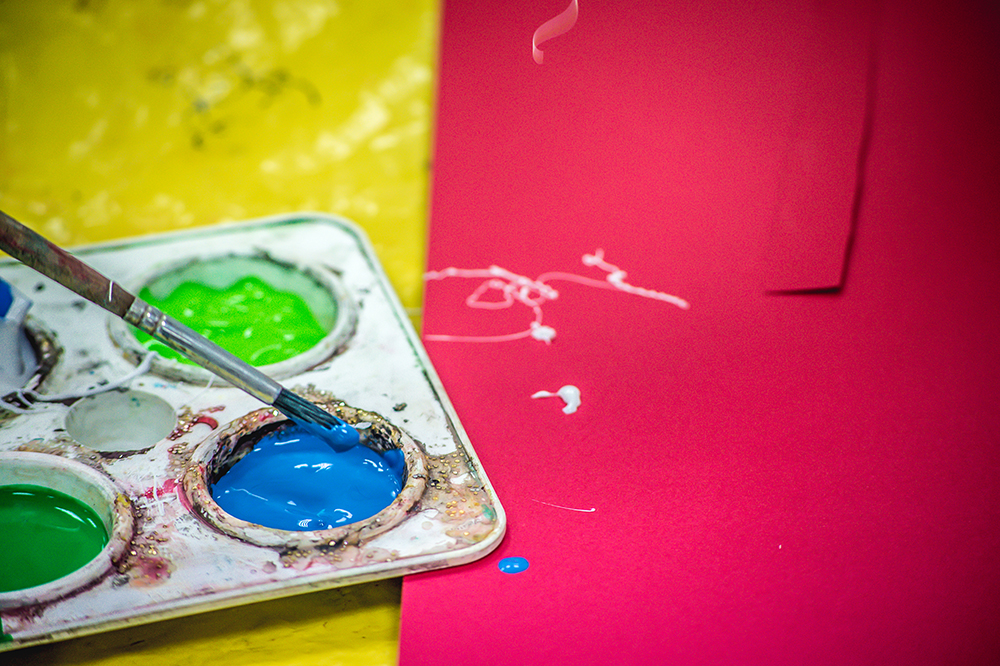Here at King’s College we follow the Early Years Foundation Stage (EYFS). The EYFS framework describes how nurseries and schools should work with children and their families to support their development and learning. The EYFS has seven areas of learning, four prime areas and three specific areas.
We focus mainly on the four prime areas: Personal, Social Emotional Development, Physical Development, Communication & Language and Sensory Integration and Processing.
Emotional well-being during the Early Years has a powerful impact on social relationships. Children who are emotionally healthy are better able to establish and maintain positive relationships with adults as well as with peers. Social-emotional development is essential to a young child’s sense of well-being. Their first relationships help shape who they are, who they become, and their understanding of the world.
Tummy time – This helps your baby to build on gross motor skills as they improve neck, back and arm strength from this position. Short, frequent sessions of tummy time will eventually help support a baby to crawl. During Tummy Time a baby can learn to kick their legs and flap their arms. They can reach and do push ups when they are strong enough. Eventually, they’ll learn to roll over to their back from their tummy.
Motor Skills – Acquiring motor skills is just one part of children’s development. Mastering both fine and gross motor skills are important for children’s growth and independence. Having good motor control helps children explore the world around them and also helps with their cognitive development. Motor skills also have an impact on the child’s health and self-care skills.
Studies show that talking with babies from birth builds on their language and communication skills. Activities such as reading, singing songs and using rhyme are good for developing Language Skills and also to stimulate your baby.
Nappy changes and meal times are seen as another important time of the day to develop these skills. Staff take time to talk to and listen to your baby as the rudiments of speech develop, helping and encouraging them in their first steps towards language acquisition.
Sensory play includes any activity that stimulates your young child’s senses: touch, smell, taste, movement, balance, sight and hearing.
Sensory activities facilitate exploration and naturally encourage children to use scientific processes while they play, investigate and explore. The sensory activities allow children to refine different sensory information helping their brain to create stronger connections to process and respond to sensory information.
Here are 5 reasons why sensory play is important for babies and young children:
- Research shows that sensory play builds nerve connections in the brain’s pathways, which lead to the child’s ability to complete more complex learning tasks when they are older.
- Sensory play supports many areas of development including language development, cognitive growth, fine and gross motor skills, problem solving skills, and social interaction.
- Sensory play helps to develop and enhance the memory.
- Sensory play is great for calming an anxious or frustrated child.
- Helps children learn sensory attributes.


